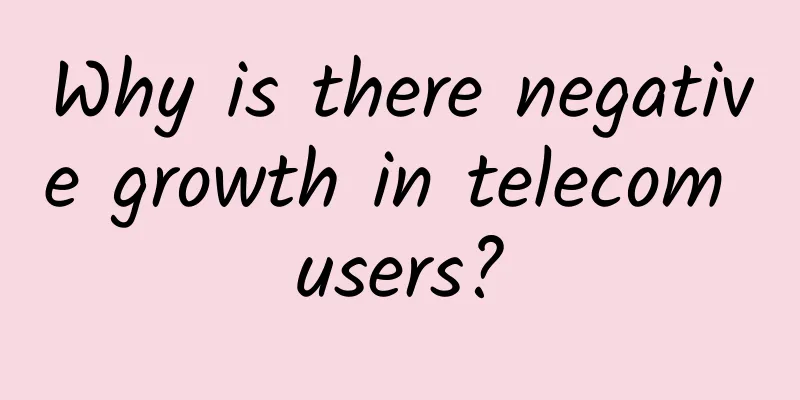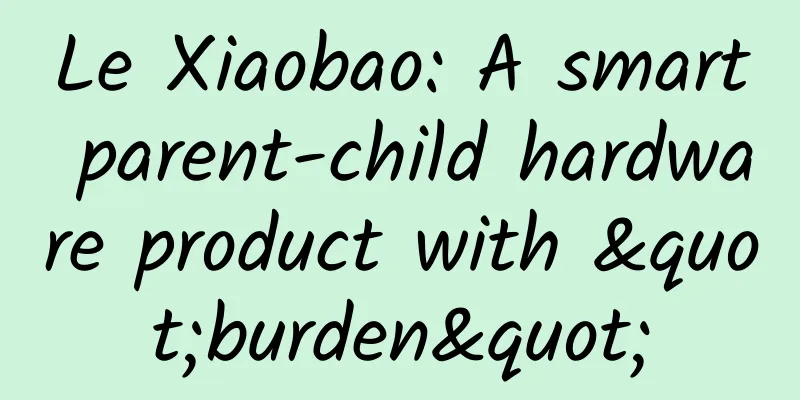Who will take advantage of the trend and take off first in the smart TV industry?

|
The successive participation of traditional IT giants, Internet companies, and even BAT has made the smart large-screen TV market a hot commodity. At the same time, whether it is the huge user base of living room entertainment or the temptation of the concept of smart home system, the competition in this market has become extremely fierce. However, due to different genes, different strategies and different business models, the smart TV market has finally transitioned to a stage of competition among several major development models. Although the outcome is still undecided and the competition is becoming increasingly fierce, after analyzing them one by one, the final conclusion is: only you know the cold and warmth. New wine brewed in ancient jars requires new recipes It is undeniable that in the field of smart TVs, traditional IT giants have brand, channel and supply chain advantages that can only be brewed with time. And it is precisely such advantages that indicate that even if traditional TV manufacturers lose the support of new technologies, they can still struggle in the consumer market for several years. But the problem is that after several years, the sound of the revolutionary era will have faded away, and there may be no talk of change. On the road to transformation to embrace the Internet, the embarrassing situation faced by traditional home appliance manufacturers seems to be that the Internet is the reason for their success or failure. For traditional home appliance manufacturers, transforming to the Internet is undoubtedly the only way to adapt to the market and retain users. However, it is precisely their "traditional" origin that has led to the fact that these IT giants all have the weak point of "Internet". In terms of product research and development, the efforts shown by most traditional manufacturers are merely to make the TV products themselves "intelligent", that is, to take advantage of hardware manufacturing advantages, install the Android open system, label them with "Internet thinking" advertising labels, and then put them on the market. But the problem is that the user experience value has not been greatly improved in the "upgrade" of this kind of product. Without the constraints of hardware support, the traditional IT giants' lack of software, content and experience applications will eventually lead to the end of their user service and experience levels. Recently, there was news that Lenovo Group cancelled its smart TV division in China due to the unsatisfactory performance of its smart TV business. Obviously, this decision was caused by many factors, but for Lenovo Group itself, although its smart TV hardware products are excellent, the lack of content experience under its products has lowered the overall competitiveness of the brand. A strong alliance is bound to hurt both sides After the BAT structure of the three major Internet giants was tentatively determined, other Internet companies and traditional manufacturers have all shown a willingness to cling to the big guys in order to find a "shortcut" to success. Internet startups with no money and no connections waiting to be acquired can be considered to have found a good destination. However, when traditional companies with "prestigious backgrounds" also choose BAT for salvation, they are inevitably misunderstood as being "kept". Recently, Haier Ali II generation TV was officially announced. As another smart TV product jointly developed by Haier and Ali, Haier Ali II generation TV chose to maintain the independence of each other's advantages in the field of smart TVs through modular design, that is, Haier is responsible for hardware research and development, and Ali provides software ecosystem support. In this cooperation model, traditional manufacturers have clearly fully utilized their hardware advantages in smart TV products, while Internet companies have continued the powerful charm of their Internet genes. The strong combination of the two parties seems to have brought a leapfrog development and innovation to the smart TV industry, but after layer-by-layer analysis, it is not difficult to find that it is the lack of service models in products that has forced traditional manufacturers to begin to transform into upstream hardware suppliers. As for the Internet giants, if there is no support from intuitive hardware products, this long-term lack of "sense of security" will inevitably lead to their advantages in software content gradually becoming "paper talk". The final result will also be that once problems arise in the combination of products, the two parties will immediately part ways. Change the tradition and build your own ecological model In addition to the indispensable traditional home appliance manufacturers and Internet giants, the raging fire of the smart TV industry has also ignited the involvement of many cross-border companies. At the beginning of this year, broadband operator Dr. Peng launched its first smart TV product, Damai TV, hoping to enter the smart TV market through broadband services. However, after content application services have become another benchmark for measuring smart TV products, relying on the advantages of high-speed broadband does not seem to be a killer weapon for overtaking the industry. In the field of smart TVs, it is obvious that "both soft and hard" is the way to success. As users' demand for smart TV applications continues to grow, LeTV, which has broken the original corporate development model by building an ecological system, has begun to become a representative of innovators in the smart TV field. LeTV's biggest advantage in entering the smart TV field is that it has independently developed hardware products, perfectly integrated hardware, software, content, and core applications in one step, and through the collaboration of the ecological industrial chain under the Internet model, it has created a complete ecosystem of "platform + content + terminal + application". More importantly, unlike other corporate development models, the profit starting point of LeTV Super TV under the entire industrial chain does not lie in the hardware products themselves, but in the back-end service content that can be continuously developed. The success of this ecological approach was also confirmed by Xiaomi's subsequent investment of US$1 billion to supplement content resources and its recent low-key launch of the low-priced Xiaomi 40-inch TV. Of course, in this gradually taking shape competition landscape of products and business models, whoever can become the industry leader with the most leading role and room for growth, going with the flow may be the only path. As a winner of Toutiao's Qingyun Plan and Baijiahao's Bai+ Plan, the 2019 Baidu Digital Author of the Year, the Baijiahao's Most Popular Author in the Technology Field, the 2019 Sogou Technology and Culture Author, and the 2021 Baijiahao Quarterly Influential Creator, he has won many awards, including the 2013 Sohu Best Industry Media Person, the 2015 China New Media Entrepreneurship Competition Beijing Third Place, the 2015 Guangmang Experience Award, the 2015 China New Media Entrepreneurship Competition Finals Third Place, and the 2018 Baidu Dynamic Annual Powerful Celebrity. |
<<: The 5-year-old iPad is at a crossroads. Where should it go?
>>: Youku tests smart hardware to expand IP diversification
Recommend
Domestic companies fined for infringing BMW trademark rights
According to a recent report by Shanghai Daily, t...
SUSE releases technology trend predictions for 2025
Author: Vishal Ghariwala, CTO, SUSE Asia Pacific ...
Marketing promotion: How to make your ad attract users' attention in 1 second?
In an age of scarce attention, every user is very...
Korean automakers' market share in China continues to decline: Hyundai and Kia's sales fell by more than 60% in June
The sluggish sales situation of Korean automakers...
A clear, complete and reusable solution for recalling lost users
Peter Drucker, the father of modern management, o...
Two ice creams for 45? Which ice cream have you ever paid for?
Nowadays, if you pick up an ice cream at a conven...
Xiaomi Tablet running score test: Tegra K1 is indeed not exaggerated
Yesterday afternoon, Xiaomi officially released th...
An in-depth review of the top five WeChat app development IDEs
[[174800]] WeChat Mini Programs have been in beta...
People who get weak in the knees when seeing a needle are in luck! A new blood collection device uses leeches to greatly improve the comfort of blood drawing...
Are those who feel weak in the knees when seeing ...
One word difference: erythromycin ointment or erythromycin eye ointment, are you using it correctly?
In daily life, erythromycin ointment and erythrom...
"In the Name of People" has 100 articles with over 100,000 views. Here are 4 universal tricks to follow the trend.
Since its launch on March 28, the WeChat index of...
Tmall Magic Box 2nd Generation 1S Review: A Smart TV Box That Adds Color to Your Life
Faced with the current booming smart TV industry, ...
I felt a chill down my spine and when I turned around I found someone was really staring at me. Was this telepathy?
Have you ever had this experience: you feel like ...
Behind Kuaishou’s entry into cities, how to promote in the rural market?
The rural market gives you a long time, and you h...
When dealing with products in different periods, how can operations grasp the rhythm?
If you want to borrow some knowledge, sense of rh...









![Zhu Dan's Basic Sketching Course [General Quality]](/upload/images/67cc28b7b8171.webp)